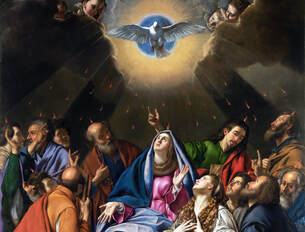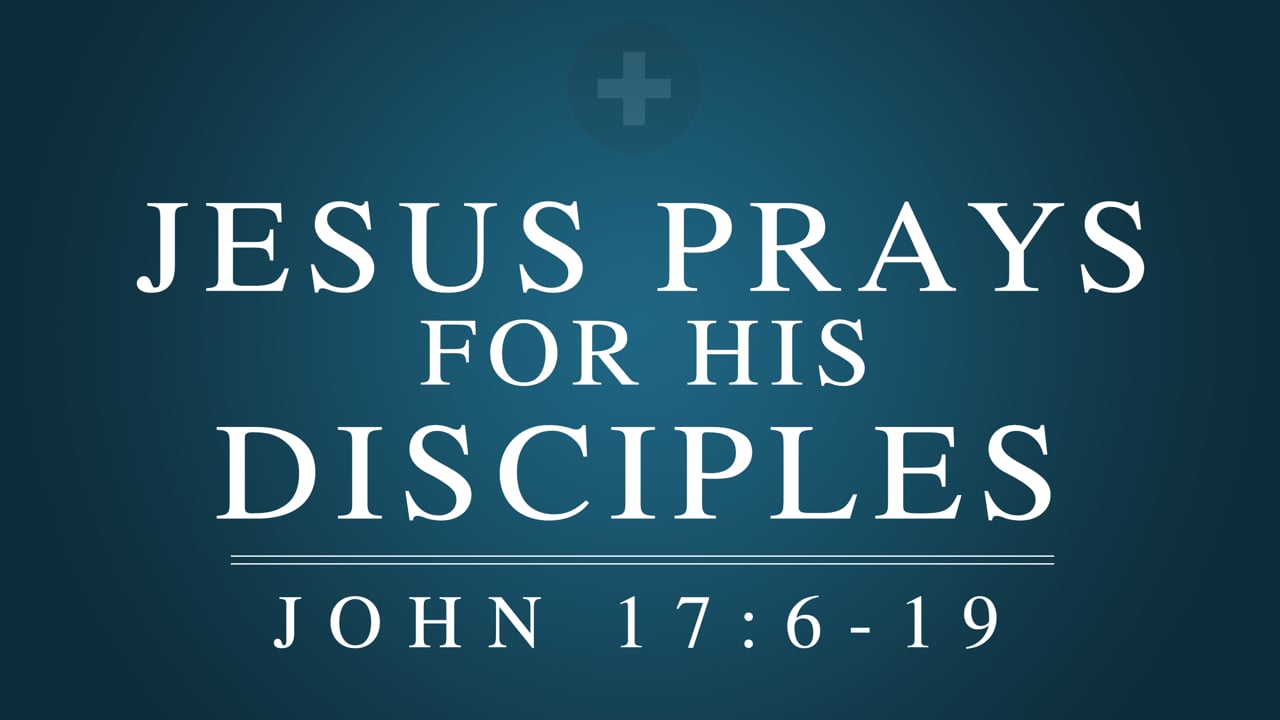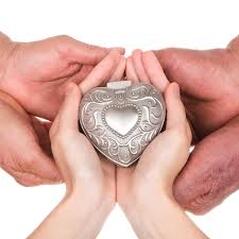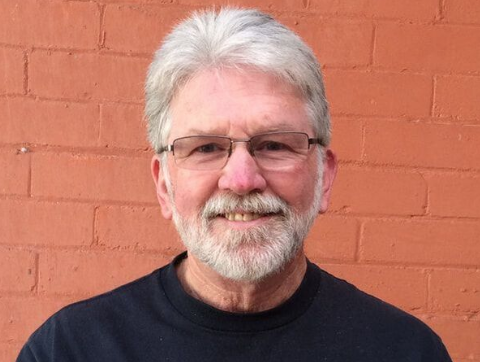Reflection: "Our New Lives in Christ"In the passage from Romans, Paul tells us that:
“if you live according to the flesh, you will die; but if by the Spirit you put to death the deeds of the body, you will live.” Last week, we looked at the work of the Holy Spirit in the lives of the disciples on that Pentecost day. They were baptised in the Spirit and then went out into the world as new men and women, empowered by the Spirit to spread the Gospel of Jesus. This can be our mission, too, if we accept Christ’s call on our lives and renounce the ways of the flesh. But today, we're going to delve a bit deeper into the familiar passage we read from John’s Gospel (ch 3:1 - 17). We need to go on a journey into the distant past - all the way back to the Old Testament book of Numbers, where the Jewish people are in the Sinai desert, following Moses on a circuitous trek, out of slavery in Egypt, toward the land that God has promised them. It’s taken so long that they’ve begun to doubt their leaders and even wonder if there is a “promised” land at all. They begin to murmur about their hard life of the desert, the strange, God-given diet of manna and quail, and the uncertainty of their serpentine route.Serpentine in more ways than one! For here, in Numbers 9, somewhere out in this seemingly God-forsaken land, there’s a plague of poisonous snakes. Now, I don't know about you, but I don't particularly like snakes and seek to avoid them, whenever possible. But for the Hebrew people, it was far worse, because the snakes were many, and they were poisonous. People began to die and so they went to Moses, suspecting that the snakes were some kind of divine retribution for all their complaining and they asked Moses to intercede for them with God. In response, God tells Moses to fashion a serpent of bronze and put it on a pole. Then if any of the people are bitten by a poisonous snake, they should gaze at the bronze serpent and they will be healed. And, of course, God’s suggestion actually worked. Later on, in 2 Kings 18, we read that for 500 years after Moses, the people have been settled in the Promised Land and they are clamouring to have a king - like other nations had. Many of the kings were disappointing and corrupt, but one king, Hezekiah, was different and he cleaned things up. One of the things Hezekiah did was to remove the “high places”, breaking down the pillars and cutting down the sacred pole, thus destroying the pagan worship places, which had cropped up around the land. Then we read these words: "He broke in pieces the bronze serpent that Moses had made, for until those days the people of Israel had made offerings to it. They called it Nehushtan." Do you see what had happened? Five hundred years after Moses had made the bronze serpent as a means of healing for the people, they still had it - and it had become an idol. That is, what had been a means to an end had become an end in itself! Instead of pointing toward the God who had ordered it made, it now pointed toward itself - and the people worshiped the serpent, instead of the God who had made it help them in a time of need. Sometimes, we Christians are guilty of worshipping what is old, but no longer precious, or useful. We have our traditions, and we rebel against change. These two Old Testament passages about the bronze serpent illustrate a necessary point. What had been helpful and healing in one era had become an idol in another. I can't help but wonder: how many things in the life of our churches used to be helpful and healing, but have now outlived their usefulness and how many old traditions have we turned into idols? Good King Hezekiah smashed the bronze serpent, and in so doing, proved to be an example of the spirit of reform. So, are we done with our serpentine ancestry? Have we seen the last of the bronze serpent? Not quite. In today’s Gospel reading, we find Jesus visited by Nicodemus, under the light of a candle. Nicodemus was a respected member of the Sanhedrin, the religious leaders of Jerusalem and he came to Jesus under cover of night - the purpose of this clandestine meeting was to quiz Jesus. In whispered tones, Nicodemus asks: "Rabbi, we know that you are a teacher who has come from God; for no one can do these signs that you do, apart from the presence of God." With these few words, a door is opened and Jesus steps through. "You must be born from above," Jesus says. But Nicodemus misunderstands him because the Hebrew word for “from above” can be taken two ways. Nicodemus thinks Jesus has said, "You must be born again", but Jesus was actually meaning: “You need to be born on two levels - water and spirit. You must be born from above!” So here comes that well known passage John 3:16, "For God so loved the world" - the Gospel in a nutshell. But how many remember the verses that comes just before it, where it says: "No one has ascended into heaven except the one who descended from heaven, the Son of Man (i.e. Jesus). And just as Moses lifted up the serpent in the wilderness, so must the Son of Man be lifted up, that whoever believes in him will have eternal life." There it is! The bronze serpent has come back in the New Testament, in today’s gospel reading! That bronze serpent - made by Moses and smashed by Hezekiah - has come back at the end of this serpentine story. Jesus is not saying that a serpent on a pole can heal you; he’s saying that, just as the serpent was lifted up in the wilderness to heal, so he, Jesus Christ, the Son of Man, must be lifted up on a cross to be able to save us. From the desert wanderings of the Israelites to the hill of Calvary. And there we hear the call to lift up our eyes and see the one who saves us and gives us abundant life. So now the snake of Moses has led us to that favourite verse, John 3:16, but also to this great, final word in verse 17: "Indeed, God did not send the Son into the world to condemn the world, but in order that the world might be saved through him". God sent Jesus to earth, not to condemn us for all that we’ve done wrong, but to save us from those very wrongdoings, by giving up his mortal life on the cross, that our sins could be forgiven. Maybe you've been in church all your life. Maybe you're a person who ticks "none", in the census when asked about your religious affiliation. Or maybe you're a seeker, like Nicodemus, checking Jesus out under the cover of night. Whoever you are, remember this: Jesus didn’t come to condemn you, but to save you and give you new life. So lift up your eyes. Lift up your hearts. The story has come to this: "For God so loved the world" and because of that, we can live new lives in Christ. Blessings Pastor Rick
1 Comment
Reflection: "Pentecost"How do you think you’d react if you attended a huge multi-cultural church meeting and you heard a mighty rushing wind and saw tongues of fire descend and land on each of the heads of a bunch of uneducated people, who weren’t even from your city?
And after all this, these people got up started speaking knowledgably and logically about God – and in languages that all the people, from at least 15 different language groups, could understand in their native tongue? Well, I don’t know about you, but I think it’d freak me out if I was there. When this happened to the disciples of Jesus and about 120 of the believers, it would have been quite a sight. That’s what happened at the Harvest Festival (Shavuot), where a number of devout Jews were commemorating the giving, by God, of the 10 Commandments to Moses at Mt Sinai. It had occurred 50 days after their exodus from Egypt. That same festival is known by Christians today as Pentecost, which literally comes from the Greek for the 50th day. It’s the 50th day after the resurrection of Jesus on Easter Sunday. This day is often seen as the “day the church began”, because it’s the first occurrence of baptism by the Holy Spirit and therefore indicates the inauguration of the Christian church.Interestingly, this morning’s reading from Acts 2 doesn’t actually state that a Spirit baptism took place at Pentecost. It just says that they were “filled” with the Holy Spirit. However, Acts 1:5 gives us the anticipation that it will occur (“for John baptized with water, but in a few days you will be baptized with the Holy Spirit”) and later in Acts 11:15-16 it refers back to it as having occurred on that day. The Christian church, therefore, came into existence on that day and the believers were baptized into one body – that which we now call “the church”. We join the story where the disciples now seem to have re-found their courage and speak boldly. Only 7 weeks earlier, they’d scattered and hid, fearful for their lives. Even after Jesus had re-appeared to them a number of times following his resurrection, they were still reluctant to speak in public. It must have been a very confusing time for them. On the one hand, they were sad because their teacher had been killed and taken away from them and, therefore, that part of their life was over, but it must also have been a great experience and adventure for them. They would have been filled with joy as they were about to take the message of the gospel to the rest of the world. The disciples had been with Jesus for 3 years before experiencing his death & resurrection and the 40 days of learning before his ascension, but now they seem to be on their own.We remember that earlier, Jesus had promised that he wouldn’t leave them alone, but he would send a comforter, the Holy Spirit, to be with them forever. It was only after being baptised by this Spirit, that they had the courage to speak out in front of their peers. The report from Acts that “3,000 were added to their number” indicates that the disciples must have spoken well and what they said obviously made sense to those who heard them (in their own language). It must have been a mighty sight to witness and then Peter addressed the crowd. For the first time, he publicly preached about Jesus Christ, the Son of God. This is the same Peter who, only 7 weeks earlier, was so scared that he had denied even knowing Jesus. What was so different now? It was obviously the Holy Spirit that gave him the ability to speak so eloquently and boldly. He started off by defending the 11 against the accusations of drunkenness that were being made by the crowd. He pointed out that it was only 9am and they couldn’t possible have had too much wine, as on such a festival day, they wouldn’t have broken their fast before 10am. Instead, he postulated that what the people were witnessing was a fulfilling of the words of prophesy, spoken by the prophet Joel, when he said that, in the last days, God would pour out his spirit on all people and that miraculous things would happen. Of course, Joel was talking to the people of Judah, some 860 years before Peter quoted him, but the message was the same: You may have done nasty things to God’s son, Jesus, but God is still willing to forgive you and bless you - if you accept his message and are baptised. Peter went on to tell them about how Jesus had brought the gift of the Holy Spirit to them and that they could receive it if they repented of their sins. Surely this should be the basis for every evangelist’s words today. We can only read in amazement and wonder as the writer tells us how even Peter, the one who ran away, can be so convincing that 3,000 people believed on that day and were converted. While ever the disciples sat and meditated and prayed behind locked doors, they remained defeated and downcast. When they ventured out to share the Good News they knew the gift of the Spirit of God in life-changing ways. Is it an exciting thing we can participate in? Certainly. Are we given a peace within? Absolutely (even if all around is turmoil - but it can certainly be hard to find at times.) Reading your bible every day is one way of finding that peace. Does every Christian have the gift of the Spirit? Definitely - so long as we actually follow Jesus in his mission. Can we predict where the Spirit will blow us? No way. So, what can we do and how can we be as brave as the disciples, when we’re not sure if we’ve felt the Holy Spirit come upon us? Maybe, when we’re talking to friends and acquaintances in the coming weeks, remember these words from Acts and pray that God will use even people like us to do his work in the world today. We may feel like we’re speaking words that our listeners may not even understand, but, with the help of the Spirit who came at Pentecost, they will hear us in their own idiom. The worst thing would be for us to not speak the words in the first place. Maybe not all of us feel that we have the gift of evangelism, but it’s worth giving it a try. Start with baby steps and see how it goes. We need to remember that we’re just the planters of the seed, God will take over and use the Holy Spirit to nurture and grow them. But if we haven’t even planted the seed, all the watering and feeding will be of little use. I encourage you to think of ways that God can use you to further his Kingdom, here on earth and I pray that the Comforter will guide you along the way. Pastor Rick Reflection: "People of Christ"In our Gospel reading today, we can hear that Jesus is praying to his father, God.
Now this isn't the last prayer of Jesus, but it's the last one that the disciples probably heard. The location was in the Upper Room, on the night that Jesus was betrayed. Later, in the Garden of Gethsemane, when he prayed in agony: "Let this cup pass from me - yet not my will but your will be done", they had fallen asleep. And when he cried out on the cross: "My God, my God, why have you forsaken me?", they were in hiding, fearing for their own safety. Their sorry performance at the time when Jesus needed them most, makes the prayer we’re hearing today, all the more poignant. The disciples had always wanted to be in on his prayer-life and they had said, probably more than once, "Lord, teach us to pray." But on that last night together, after supper, Jesus wasn't teaching them to pray. Instead, he was praying for them – and he was right there, in front of them. Aware that these are his final hours, Jesus admits to God, "And now I am no longer in this world, but they are…." This must have really confused the disciples and, no doubt, they would have clung to him if they’d understood. His words underline a huge problem: Jesus is trying to tell them that he’s not going to be with them in the world. An immense sadness must have hung over the surviving disciples, and also over us, as we probably feel very much on our own, without Jesus here in this world. But what we have to realise is that while his physical body may no longer be here, Jesus is very much with us and now we are the body of Christ in the world. Or, to put it another way: We are the people of Christ. Saint Teresa of Avila said: "Christ has no body on earth but yours, no hands but yours, no feet but yours; yours are the eyes through which the compassion of Christ looks out on a hurting world, yours are the feet with which he goes about doing good; yours are the hands with which he is to bless now." Wow! That’s a bit of a tall order! Maybe Jesus should have left his future presence down here in more capable hands than ours - I mean, we're just not all that special, are we? We feel no miraculous power coursing through our veins, our brains get blurry, we get tired, we're stressed, we're just so very pedestrian, flat-footed, mortal...we’re…you know, human. Had I been in that room with Jesus, I might have been tempted to interrupt his prayer and plead for more explanation, especially when he says to God: "I am not asking you to take them out of the world, but I ask you to protect them from the evil one. They do not belong to the world..." But hang on a minute, do we, or don’t we, belong to the world? We were born into this world, so we're very much in it, up to our necks in it, as it turns out. As best I can tell, we're definitely in the world, but we don’t belong to the world, because we really belong to God. We are now God’s representatives here on earth, carrying on the work that Jesus started. I know that Jesus wasn't really praying for just the disciples at that time. He was praying for “them” – which includes all of us. He was praying for the church, the body of Christ in the world. Jesus prayed one more intriguing phrase: "Sanctify them in truth." Truth is elusive these days, holiness can sometimes feel smug, stuffy, or like some rigid fossil from our religious past. Lots of Christians believe that faith should make an impact on the real world and even change us – but, in doing so, we focus almost exclusively on mission work. Yes, we'll give a cup of water to the thirsty, we'll serve food at the shelter, send teams to third world countries, contribute to a fund for homeless children, etc. And these are all very good and worthwhile pursuits - but even atheists do similar things. Maybe Jesus was praying for the disciples to be more holy - not to just be “do-gooders” - but to be holy in their souls, in the privacy of their minds and in their habits.Most of us would say that we’re not really very holy or worthy, and don’t deserve his concern for us, but Jesus thinks we are and that we should receive God’s protection. I know that Christians are in the world and, like Jesus, we’re not here to condemn the world, but to love the world. But how do we actually “love the world”? Well, we certainly shouldn't go around wagging fingers, or pronouncing judgment on the actions of others. Instead, we must show them love – God’s love. To love someone is to reveal to them their capacities for life, to uncover the light that’s shining within them. Jesus prayed and revealed the beauty in his disciples (and also in us). Not their abilities, strengths, or perfection, but their beauty. Jesus didn't ask God to protect us from evil, or to protect us from bad things happening. I think it's important to think about this issue of God and whether we're protected from bad things happening, or even whether God causes bad things to happen. So, let's be clear: God doesn't sow cancer cells, or COVID viruses, in people's bodies. God doesn't crash planes into buildings. God doesn't prescribe one child to sleep under a bridge, or in a skip bin, while other children are in soft beds. God is not a control-freak, or saying it in a better way; God chooses not to be controlling in our lives - because God is love, and love just can't, or won't, control others. The Apostle Paul writes, "Love does not insist on its own way." God could have made us like puppets, so that he could manipulate and control everything we do, just to suit his will, but God yearns for our love, and so he cut the strings and gave us free-will. Understandably, we want everything to go smoothly for us and others, and we associate God with all that is good. But God is the Lord of everything, and in the shadows of that very dark room where Jesus prayed by flickering candlelight for his disciples, we realize he was about to suffer, and the ones he prayed for would suffer too. All of us face difficulties, some are manageable, but some seem overwhelming. Jesus prayed so that the disciples would see him pray, and he still prays for us now, right now, from heaven, so that we can be his hands and feet in world in which we live. So, whatever we do in our interactions with those who are around us, let us be true representatives of the love that Christ has for all his people, for his family who are in, and of, this world. Whether we like it, or not, we are the people of Christ, here in his Kingdom, and we must go out among the people of the world, sanctified in truth, telling them of the love that Christ has for them, too. Then they, too, will have the choice to become people of Christ. Vaya con Dios (travel, or go, with God) Pastor Rick Reflection: "Mothers and Fathers"I guess most of us have things that we would say we “love”.It may be our friends and relatives, a new car, or other large purchase, it might be ice cream, or something else.
My weakness is chocolate. Yum……chocolate! But when I say I “love” chocolate, is that really love, or is it just that I really, really like the taste? On this special day, when we remember our mothers, I’m sure that most of us would profess to loving our mothers. Mothers are the epitome of self-sacrificing love toward their children and we really should be treating every day as our mother’s day, rather than just on the second Sunday in May, when the gift card makers, the chocolate and the flower sellers, make a fortune. But in this reflection, I’m going to talk about a slightly different kind of love. In the Gospel of John, Jesus tells us that he chose us, not the other way round and that, if we follow his commands, he will love us forever. Sometimes we talk of God as “the Father”, but I think that it’s better for us to think of him as a parent, because God has many motherly qualities as well. Some people today even refer to mother/father God - because God is not just a fatherly figure. The ancient Israelis had a fixation on men and fathers, but we’re much more enlightened these days. Many Christians like to tell others that they’ve made a decision to follow Jesus, but in our bible reading, Jesus tells us that he’s already chosen us and that he’s just waiting for us to wake up to that fact. That sort of puts a different complexion on our relationship with him, doesn’t it? We’re invited into a friendship with him. And how happy the psalmist was in Psalm 98! He exhorts us to celebrate, with joy, the righteous reign of the Lord. We’re told to sing a new song to the Lord. And it’s not just us that he tells to make music, but all the earth – the sky, rivers, seas, all of God’s creation. We need to be joyful for his love of everything he put here on earth. When we’re filled with so much joy, we naturally want to share it with others, and the first ones we think of are our relatives and friends. Speaking of friends, there’s a lot of noise being made these days about a computer program called Facebook. You’ve probably heard of it, even if you aren’t actually a Facebook user. To participate in Facebook, you need to have a computer, connected to the internet and then, in the Facebook program, create a “user profile”, with as much, or as little personal information as you choose to enter. You can then link to your “friends”, if they’re also on Facebook, by sending out a “friend request”. The other person can then choose to either “accept” you as a friend, or ignore your request. If they get sick of you down the track, they can also “de-friend” you! Aren’t we lucky that God never denies our “friend requests” and, no matter what we do in the future, he’ll never “de-friend” us! But these are a very different sort of friends to those that Jesus is talking about in John 15. He says that God loves us like friends, not like servants, because servants don’t know their master’s business. When we begin to follow Jesus, we are shown how he wants us to live and behave. God gave us free-will when he created us, so we don’t always follow his commandments as well as he’d like us to. Even when Jesus made it as simple as he could, by saying “This is my command: love each other”, we still manage to break that one. Sometimes it’s in big ways (like declaring war on other people, committing murder, etc.), but mostly it’s in little ways (like harbouring bad thoughts about another person). Jesus then tells us that all the rituals, sacrifices of animals and strict adherence to the Jewish Law are as nothing. What matters is how we treat one another. We are also told that obedience to God’s commandments will bear fruit. The first fruit of abiding in love is that we have joy. The joy of knowing that we are loved by God – which is not an earned emotion, but a state of being. Joy comes from the conviction that nothing can separate us from the love of God. Paul also lists the “Fruits of the Spirit” in his letter to the Galatians. These are the conclusions of a man who had suffered immeasurably because of his love for Christ. And yet because he knew that he was one with Christ, abiding in his love, the fruits that resulted were these: love, joy, peace, patience, kindness, generosity, faithfulness, gentleness and self-control. Such attributes spring from abiding in Christ’s love – otherwise, a man who had suffered as much as Paul, would have been filled with bitterness. But Paul had nothing but love in him and he shared it with those he met. Jesus also says that a real friend is one who will lay down his life for you. Of course, Jesus could say that, because that’s exactly what he was about to do at Calvary. He gave his life to atone for the sins of the people, even though he had committed no sin. By giving up his life willingly, we are able to freely enter the Kingdom of God when it’s our time to join him. I’m sure that some of us may feel that way about another person, or have friends that we think would do that for us, but let’s pray that we’re never put in that situation, where we have to find out. Jesus says that when we show love for one another, the fruits will soon be seen in our lives and in the church. He doesn’t guarantee that we’ll all become instant billionaires, as Mark Zuckerberg and the founders of Facebook have become, but he does guarantee that our lives and our relationships will become rich and fulfilling. That still sounds pretty exciting to me! Do you think that’s how people in the Lane Cove community, or other parts of Australia, or even the world, know us? Do we send out a message of love and forgiveness, or are we just cocooned in our own lives and issues and don’t have time to reach out and influence others? When Lynne & I arrived at the church, 9 years ago, we certainly found that this community of God is a very welcoming and loving one. We encourage you all to continue that good work, so that people who join us for Sunday worship, or come into contact with us at any other activity, can experience the love that Jesus gives us. I’d also like you to consider just what you, either personally, as a small group, or as the church in Lane Cove, could do to let people know how much better it is to be God’s close friend, rather than just a Facebook-style friend. “Friendly” blessings be upon you all. Pastor Rick |
Pastor
|
LANE COVE
|
Worship Service:9:30am Sunday
© Lane Cove Uniting Church | 2020
|






 RSS Feed
RSS Feed